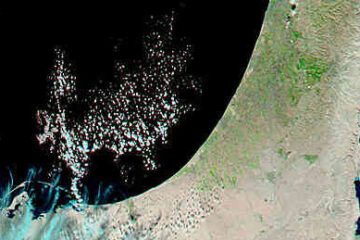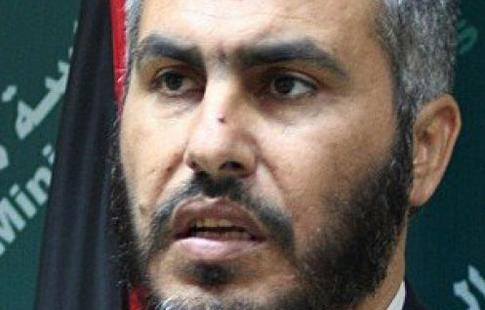Gershon Baskin is part of a Global Coalition of Non-Governmental Organizations Proposed to Provide Greater Support for Two-State Solution
Representatives of non-governmental organizations, as well as students and others attending today’s United Nations Public Forum in Jakarta, Indonesia,Support of the Palestinian People, discussed ways in which civil society could promote greater solidarity with the Palestinian people, and how they could join forces in backing a peaceful settlement of the Israeli-Palestinian conflict, while stressing that a two-State solution was the only way.
The one-day event followed the United Nations Asian and Pacific Meeting on the Question of Palestine, which took place in Jakarta on 8 and 9 June. Both events, hosted by the Government of Indonesia, were held under the auspices of the Committee on the Exercise of the Inalienable Rights of the Palestinian People.
In opening remarks, Desra Percaya, Director for International Security and Disarmament in Indonesia’s Ministry of Foreign Affairs, encouraged non-governmental organizations to assist in the peace process as their ideas and enthusiasm were critical. In order to be effective, however, non-governmental organizations must not only keep abreast of developments, but also work in close collaboration with other non-governmental organizations to form a strong network.
Paul Badji ( Senegal), Chairman of the Committee on the Exercise of the Inalienable Rights of the Palestinian People, commended civil society organizations for their efforts to uphold international legitimacy with regard to the question of Palestine through advocacy and the mobilization of public opinion, and urged them to harmonize their efforts at the local, national, regional and international levels.
The Forum consisted of two panel discussions under the respective themes “Civil society in solidarity with the Palestinian people” and “Joining forces — Civil society of Asia and the Pacific and worldwide initiatives to support a peaceful solution of the Israeli-Palestinian conflict”. Panellists highlighted their organizations’ activities and offered ideas and plans for advancing the vision of two States, Israel and Palestine, living side by side in peace and security.
In the Civil society in solidarity with the Palestinian people panel, Ram Karthigasu, grass-roots organizer from Kuala Lumpur, Malaysia, moderated the discussion, which featured panellists Joharah Baker, Senior Writer with the Palestinian Initiative for Global Dialogue and Democracy (MIFTAH) and former Editor of the Palestine Report; Gershon Baskin, Co-Chair, Israel-Palestine Center for Research and Information (IPCRI), Jerusalem; Hikmahanto Juwana, Professor of Law, University of Indonesia, Jakarta; Nizam Bashir, Member of the Legal Team, Kuala Lumpur Foundation to Criminalise War, Malacca, Malaysia; and Marie Antoinette S. Leviste, Outreach Convener, Young Moro Professionals Network, Manila, Philippines.
Gershon Baskin introduced a plan devised by a strategic unit of his “think and do tank” on how to move forward following the election of Barack Obama as President of the United States, with the assumption, among others, that there was now a chance that the United States would cease to use its Security Council veto in relation to Israeli-Palestinian issues. As the Israelis had always coordinated strategic issues with Washington, it might now be possible for the Palestinians to coordinate their strategies with Washington as well.
The Palestinian State existed and had been recognized by more than 100 countries, Gershon Baskin said. Its borders had been defined, and it had been decided that Jerusalem would be the capital of both Israel and Palestine. Given the existence of the Palestinian State, President Mahmoud Abbas should now submit a formal request for membership to the United Nations in the knowledge that the United States would not block that request with a veto in the Security Council. Such a request would certainly get the necessary two-thirds support in the General Assembly. That would change the rules of the game as Israel’s occupation of the West Bank and Gaza would no longer be an occupation of undefined territories, but an occupation by one Member State of another Member State.
Gershon Baskin stated that the Security Council would then be fully authorized to use all its tools to bring about an Israeli withdrawal, he continued, adding that the implementation mechanism could be the empowerment of the Middle East Quartet. Israel must then immediately remove outposts and stop expanding its settlements. The Council would recognize Jerusalem as the capital of the two States and, recognizing the importance of the holy sites, place them under international guardianship. The Council would also announce its readiness to deploy peacekeeping forces. Once that plan was put into place, the Provisional Government of the State of Palestine would set a date for new elections, while Hamas would either recognize it or be removed from relevance by the Palestinian people.
Click here to read about the United Nations Public Forum in Support of the Palestinian People


